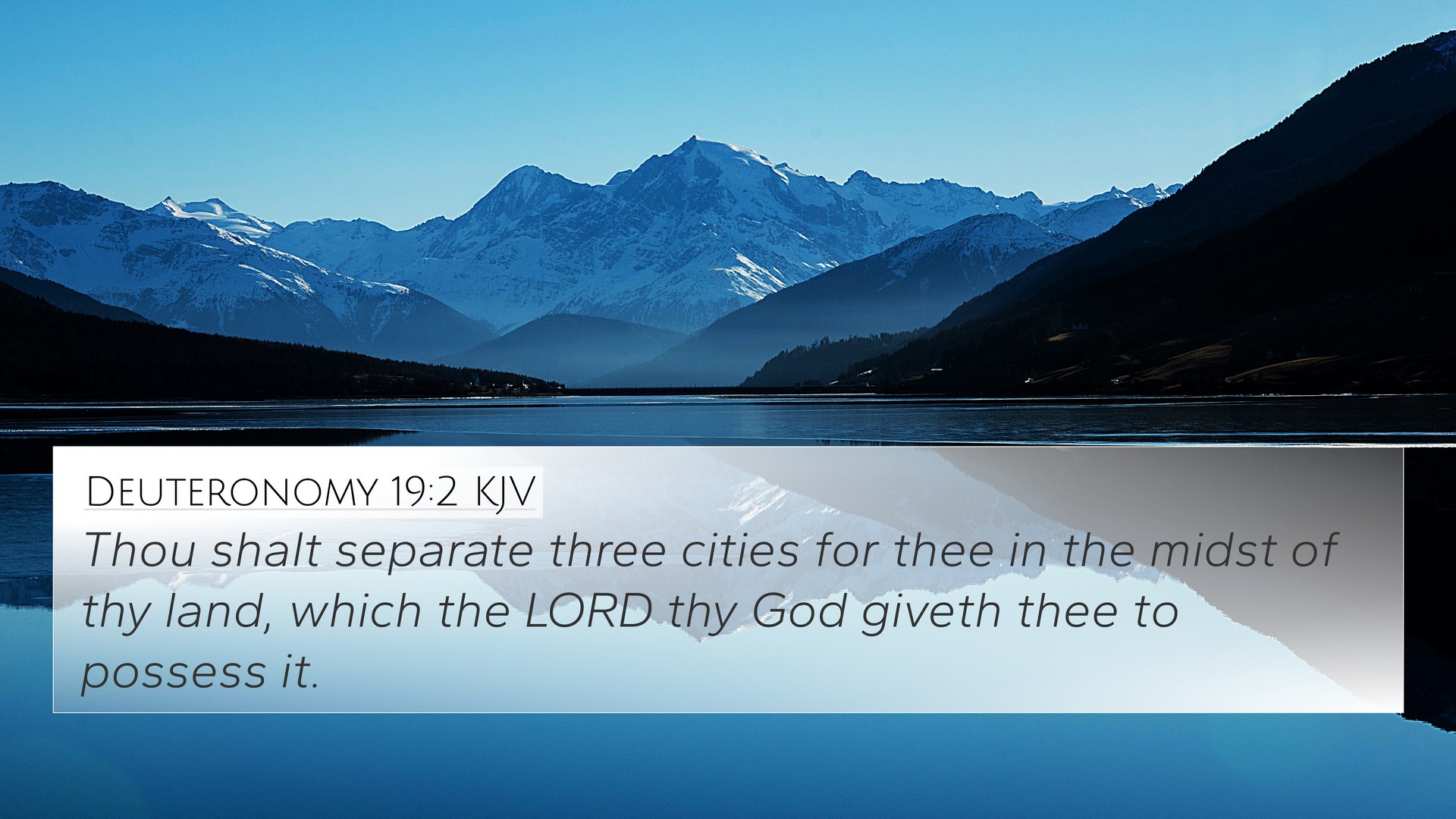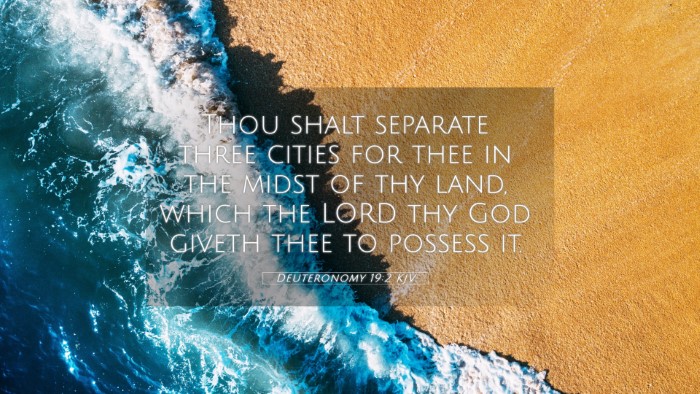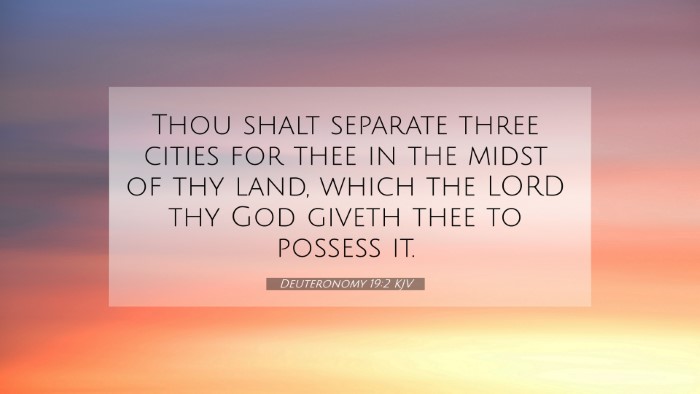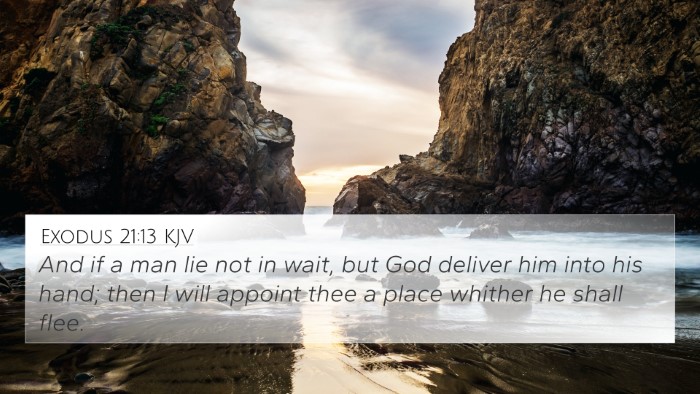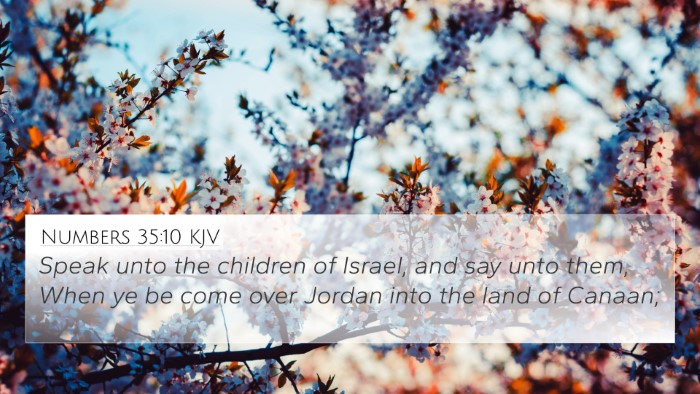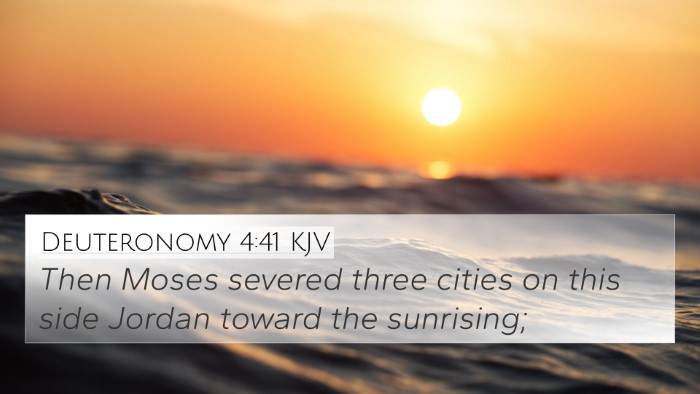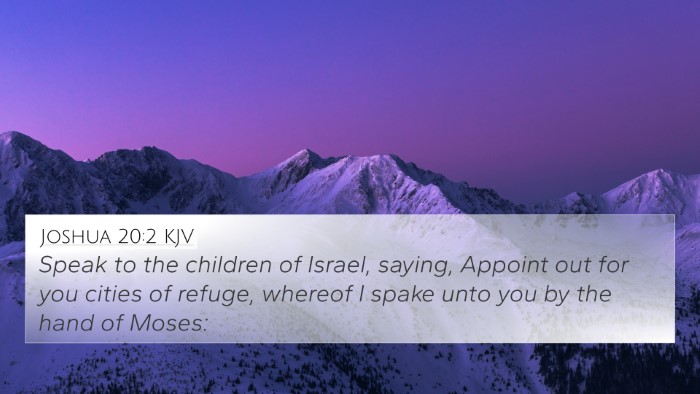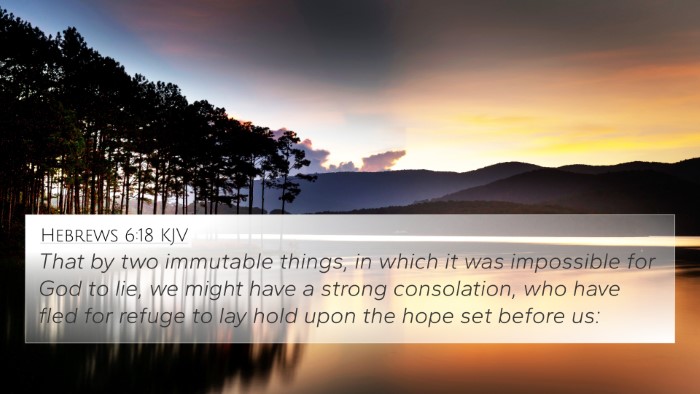Understanding Deuteronomy 19:2
Verse: Deuteronomy 19:2 - "Thou shalt separate three cities for thee in the midst of thy land, which the LORD thy God giveth thee to possess it."
This verse introduces an important aspect of ancient Israelite society: the establishment of cities of refuge. These cities served as safe havens for those who unintentionally committed manslaughter, allowing them to escape revenge from the deceased's family until the matter could be settled in a proper legal context.
Commentary Insights
Matthew Henry: Henry emphasizes the merciful nature of God's law in providing cities of refuge. He notes that this system reflects God's justice by offering protection to the innocent while simultaneously preserving societal order. The divine instruction underlines the significance of distinguishing between intentional and unintentional harm, a critical concept for maintaining justice.
Albert Barnes: Barnes interprets this verse as a part of the broader legal framework God established for Israel. He suggests that the cities of refuge not only signify mercy but also the balance of justice. These cities symbolize a sanctuary where the innocent can remain safe, hinting at God's foresight and love for humanity. Barnes also draws connections between this provision and the need for society to offer systems of mercy and justice.
Adam Clarke: Clarke elaborates on the geographical significance of these cities, noting that they were to be strategically located to provide easy access for those in need. He believes that the presence of these cities represents God's provision for humanity’s failures and shortcomings, reiterating God’s desire for justice tempered with mercy.
Key Themes
- Divine Justice: The establishment of cities of refuge reflects God's desire for a justice system that protects the innocent.
- Mercy: This law illustrates how God provides for human frailty and offers respite to those in distress.
- Community Responsibility: The communities were expected to uphold the sanctity and purpose of these cities, teaching that societal wellbeing is a collective responsibility.
- Geographical Significance: The emphasis on location shows the importance of accessibility in justice and mercy.
Bible Cross-References
Several verses provide further context and elaborate on the themes found in Deuteronomy 19:2:
- Numbers 35:6: Discusses the designation of cities of refuge in greater detail.
- Joshua 20:2-3: Describes the actual cities of refuge assigned to the Israelite tribes.
- Exodus 21:12-14: Establishes laws concerning accidental manslaughter and the protection offered to the offender.
- Proverbs 18:17: Highlights the theme of justice and the importance of hearing both sides of a story.
- Hebrews 6:18: Connects the concept of refuge in a spiritual sense to the hope found in Christ.
- Matthew 5:21-22: Jesus expands on the understanding of murder and the heart's intent, connecting with the principles behind the cities of refuge.
- Romans 3:23-26: Discusses the grace given through Christ, establishing a parallel to the mercy found in the refuge cities.
Connections to Other Biblical Texts
Deuteronomy 19:2 serves as a nexus for various themes within Scripture, supporting the understanding of divine justice and mercy:
- The importance of having a system of justice in Leviticus 24:17-22, emphasizing equal consequences for actions.
- 1 Timothy 1:9-10, which emphasizes the lawful nature of morality in community living.
- This theme is echoed in Matthew 12:7, where Jesus states that mercy is more desirable than sacrifice.
Conclusion
Deuteronomy 19:2 encapsulates the balance of mercy and justice that is seen throughout the Bible. Through careful cross-referencing with related verses, one can appreciate the depth of God's provision for humanity's moral and social structure. Additionally, understanding this verse as part of a broader legal and spiritual framework allows for deeper theological insights into the nature of God’s character, as well as the implications for contemporary ethical discussions.
Through the study of this verse and its connections, individuals can unlock profound understandings of justice, mercy, and community responsibility as laid out in the Holy Scriptures.
